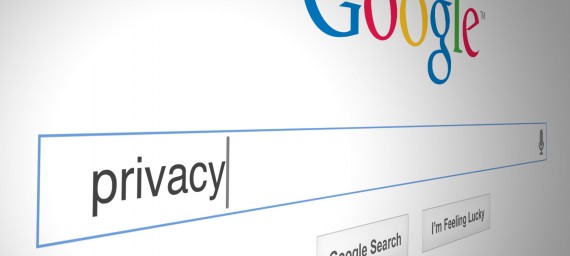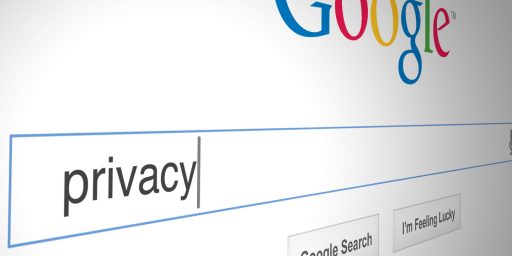The Absurdity Of The “Right To Be Forgotten”
The so-called "right to be forgotten" created by Europe's highest court is unworkable, and ultimately absurd.
Last month, the highest Court in the European Union ruled that search engines such as Google must offer European citizens a method by which to remove information about them from the search engine’s results. This right apparently exists regardless of whether or not the information which someone seeks to have removed is true or whether or not it was placed their by the person in question personally or with their consent. Indeed, in the case that was at issue before the court the complaining party was objecting to the fact that a Google search of his name led to articles in a Spanish newspaper that were, by all accounts completely accurate. Notwithstanding that fact, the Court ruled based on existing European law that citizens of the European Union have a right to have material they consider embarrassing, or indeed all material, regarding them removed from search engine results.
Almost from the moment that the ruling was handed down, Google began receiving what I supposed you’d call “take down notices” from European citizens who wanted to have information about them removed from Google’s servers. According to some reports, more than 12,000 Europeans sent in such requests on the first day alone. Rather than trying to fight the requests or the Court’s ruling, it appears that Google is trying to comply with the request:
Google’s privacy battle in Europe, between the “right to be forgotten” and the “right to know,” has only just begun.
On Friday, the company announced a basic framework to comply with a landmark ruling by Europe’s top court that requires Google and other search providers to consider individuals’ requests to remove links that they say violate their privacy.
The framework included a new online form for making such requests, which prompted strong interest in its first day. More than 12,000 people asked Google to remove links, according to a person who spoke on the condition of anonymity.
But it remains to be seen how Google will determine which links violate a person’s privacy and which links should remain available to the public. The decisions are likely to be complex, and the requests are expected to cover a wide range. In the past, some Europeans looking to erase their online histories had criminal records, while some wanted to remove outdated or erroneous information.
“It creates an unworkable situation,” said Fred H. Cate, a professor at Indiana University who specializes in privacy. Companies “now have to have some process for determining when and under what conditions to remove links to material that any European finds objectionable,” he said.
Google is trying to walk a fine line. While it is aiming to comply with the high court ruling, it is also looking to limit the impact on its global operations. Company executives have argued that the ruling will curtail the free flow of information online and could inhibit innovation.
To foster discussion on the issue, Google is creating an advisory panel of privacy experts, regulators, academics and company executives, including the Wikipedia founder Jimmy Wales, who has been a vocal opponent of Europe’s legal decision. The committee will offer recommendations by the end of the year about how the “right to be forgotten” ruling could affect the company’s presentation of search results to its users worldwide.
“After this ruling, it’s clear that we need to think deeply about the realities of the Internet age and we must find new, innovative ways to improve privacy protections for society as a whole,” José-Luis Piñar, a former Spanish regulator who will be on the committee, said in a statement.
Two weeks ago, the European Court of Justice enshrined the “right to be forgotten” on the Continent, where privacy has long been a paramount issue. Since then, Google, which holds a roughly 90 percent market share across the region, has been trying to respond.
So far, Google has only outlined the basics. Its new privacy committee has not met to discuss the ruling, and more experts will be added to the group, according to the company
Not surprisingly, though, complying with the Court’s ruling is much easier said than done:
In the first few days after the ruling, about 1,000 Europeans asked Google to take down links, with about half having criminal convictions and half not, according to people briefed on the requests. The requests included an actor seeking to expunge links to articles about an affair with an underage girl and a doctor seeking to take down negative reviews.
Search companies will face a considerable challenge in responding to the requests. Google alone handled more than 23 million requests in the last month to remove links to copyrighted material around the world. But much of those efforts are automated and address straightforward issues like taking down a link to a stolen movie.
Dealing with individuals who bring complaints in Europe promises to be more complex because it would most likely require additional employees to grapple with less clear-cut decisions. Google now has a web form for Europeans to request that links be removed. The company also said it plans to create an advisory committee to “cultivate a public conversation about these issues.”
While the ruling appears to newly enshrine a “right to be forgotten,” Europe has long taken an aggressive stance on individual rights in the digital age. Each nation in the European Union already has a data protection agency
(…)
[T]he tech industry has portrayed the decision as a blow against the free flow of information on the web and a victory for those who want to cover up past misdeeds — including pedophiles, corrupt politicians and unscrupulous business people.
“A simple way of understanding what happened here is that you have a collision between a right to be forgotten and a right to know. From Google’s perspective that’s a balance,” Eric Schmidt, Google’s executive chairman, said in recent comments on the decision. “Google believes, having looked at the decision, which is binding, that the balance that was struck was wrong.”
Historically, many requests have been aimed at blocking wider access to what many would view as part of the public domain.
Indaco Systems, a Romanian company, operates a website that publishes Romanian court proceedings, which are released by the government. The company has received hundreds of complaints this year from citizens who are concerned about public access to court filings that involve them. Many of the complaints are spurred by Google links leading to the case records.
Adrian Nicolaide, a lawyer for Indaco, said “the information is either public — and in this case anyone should have access to it — or it is not public, and the public should have no free access.”
“Google indexing official public information leads that information to a whole new level of publicity, but it does not infringe the very purpose of public information,” he added.
The bizarre thing about this Court ruling, of course, is that removing information from a search engine’s servers doesn’t remove it from existence on the Internet. The newspaper article, bad review, negative blog post, or whatever it might be that someone doesn’t like to see associated with their name when they type it into a search box is still going to be out there and, presumably, discoverable by someone who knows where to look. Granted, the fact that it doesn’t show up on Google makes it more difficult to find, but given the nature of the Internet the idea that it won’t be found at some point is simply implausible. Indeed, if you take the European court’s decision to its logical conclusion, then Europeans should have the right not only to have information removed from Google, but should also have the right to have it removed from the servers of the sources that the search results point to. In other words, the ruling would give seemingly give everyone in Europe the right to create their own Big Brother style memory hole, removing from existence information about them they don’t like even if it’s truthful.
There are, of course, situations where information appears online that does real damage to a person’s reputation, or even the way in which they earn a living, and that information turns out to be false. In our legal system at least, those types of statements fall under the law of defamation and there are means by which someone who has been damaged can seek compensation for their losses and seek to have the false information taken down. The European court’s decision, though, goes far beyond defamation and, while it may have a basis in European law, it strikes me as being bad policy that has the potential to establish a very bad precedent. Why should someone have the right to hide truthful information about them, even if it may be embarressing? Why should they be able to prevent search engines from linking to public information databases because, for example, it might provide information about a lawsuit they were involved in or criminal charges that were brought against them? If the information is true, then there ought to be no barrier at all to its availability, and neither Google nor any other search engine ought to be responsible for the fact that this information is ought there and contained within their search index.







Hooray for our courts I say :-).
I wish I could remember more about this, but in one of the E.U. countries wasn’t there a recent court ruling that a reporter could be held liable for writing the documented truth about someone, if that truth was negative?
If I’m recalling this case correctly–and I may not be–this whole “right to be forgotten” ruling seems to be in the same spirit.
Frankly they ought to just go with “obstructive compliance” with this one. Just make a site for EU where someone can put in a name and a URL and if the name shows up on that page, it’s blocked. Whenever a blocked URL would have been returned into results put up a little EU logo and “This link has been blocked by order of The European Court of Justice”.
Let’s see how it goes in a few weeks when European users are getting nothing but “This link has been blocked…” over and over.
A couple of quick bullet points:
– this is not a new disagreement. The European “right to be forgotten” goes back at least five years
– the Europeans have taken data security and privacy more seriously than the Americans for at least the last 35 years by my own first-hand knowledge
– just because there are differences of opinion and priority between us and the Europeans doesn’t make their preferences absurd. They’re just different.
Good for the EU.
We allow takedown notices for copyright infringement, why not allow the same tools to be used for privacy infringement?
There have been articles that in the US, Google has already been working to drop some of the worst bottom feeders from their search indexes — the “pay us to take down your arrest records” blackmail sites and the revenge porn sites come to mind. It’s an editorial decision of what is and is not appropriate to surface. This is really just an extension of that.
As far as the inevitable slippery slope argument goes: who would you trust to draw the line between what is and is not private — for-profit corporations, or a government that is at least theoretically answerable to the people?
What this is simply bringing out is the age-old question of rehabilitation, brought up to the Internet Age. It used to be quite common that the way to deal with “bad boys” was to send them “abroad” where they could “re-create their lives.” Heck, wasn’t that the idea for a lot of people to “go West”?
It used to be that you would simply “go away” and remake your life, wait until everyone had forgotten about the nasty little episode that you had been caught up in.
But now with the Internet and records, we are dealing with a global entity that never, ever forgets the slightest mishap that you have ever been involved in. And it’s now easily available to everyone with a web access.
Is that really the sort of world we want to live in? Europe may be setting all the technophiles on edge, but there’s a real issue that we have to think about here.
@grumpy realist:
“Look, I don’t think it ought to be blasphemy, just saying ‘Mario Costeja González’.”
Well, one of the reasons the U.S. is considered to be so favorable to entrepreneurship (as opposed to a place like Japan) is that we allow people to fail. Crash and burn a few start-ups, and it’s usually on start-up number 4 or 5 that something really takes off.
I’m wondering–with the advent of putting “all criminal records” and all other publicly available records now on line–are we going to make it harder for people to fix their lives? You do something stupid when you are in your early twenties which is a matter of public record. Are you now going to be LESS inclined to try to get your life in order, because you know that no matter that you do in the future, that stupid little incident will be continually hanging over your head, showing up in a Google search, no matter what? If so, then why bother?
don sterling seconds this motion, while swimming in a pool of a billion dollars. guess y’all showed him!
The problem is not Google, it´s the fact that criminal records are open in the United States.
” Why should someone have the right to hide truthful information about them, even if it may be embarressing? ” Are you seriously asking this question? Isn’t that the very basis of individual autonomy?
I would venture the guess that Americans who did not live under fascist or communist dictatorships don’t really appreciate the right to privacy. People who grew up under the KGB, Stasi or Gestapo, some of the most invasive secret polices in history, have another attitude towards all seeing google.
@bill:
Sports franchises are a rare commodity,Don Sterling will no longer be among the few owning one, instead he’ll be a former owner who was forced to sell the team. If you don’t think this matters to him, then I guess you don’t understand why people buy teams in the first place…